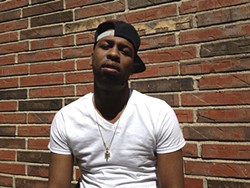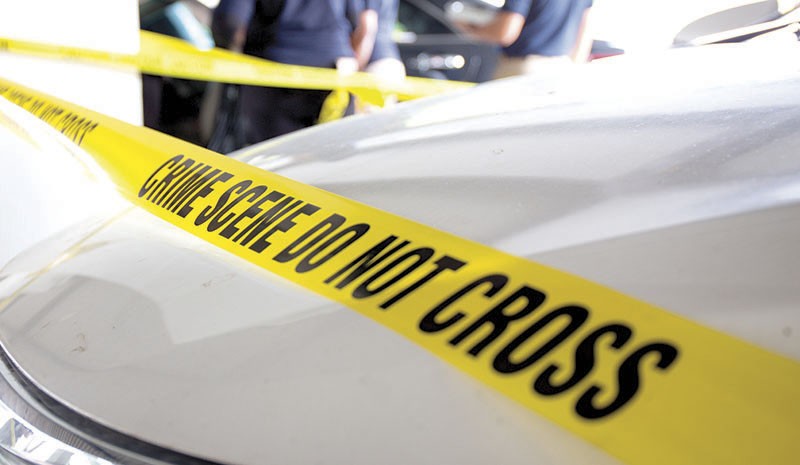Nearly seven months ago, Ivis Oldham found himself dodging a storm of bullets on Interstate 70.
He was in the driver's seat and had just steered his red Chevrolet Impala onto the highway near the Mark Twain Industrial Park in north St. Louis. His girlfriend was in the passenger seat, and his cousin in the back.
The first bullet sounded like a rock hitting the windshield. "What's that?" Oldham asked.
It was almost 11 p.m. on a Saturday, and the three were on their way to see rappers Dej Loaf and Migos perform at Harris-Stowe State University. Then 27 years old with a boyish enthusiasm, Oldham cleaned floors during the week at Missouri Baptist Medical Center. He had also landed another job as a forklift operator and was supposed to start Monday.
They were cruising through the dark, listening to Chief Keef on the stereo, when the shooting began. The confusion of the first gunshot turned to panic as the sound of bullets blasting through metal and glass thundered inside the Impala. Oldham shoved his girlfriend's head below the dash and stomped on the gas pedal. Shrapnel ripped the skin above his lips. Shattered glass embedded in his eye. Police would later count eighteen bullet holes in the car.
Oldham swerved through traffic, surging past 100 miles per hour, 110 miles an hour, 120. At least two bullets slammed into his back.

He veered off the interstate at Grand Boulevard and kept going. The Impala roared through red lights and darted around cars, racing and racing until Oldham pulled into a hospital's emergency bay, stopped the car and collapsed.
He woke in a hospital bed.
"I feel like I got a second chance at life," he tells the Riverfront Times months later. "I'm just happy to be alive. I appreciate the air that I breathe, the birds, the trees, everything."
Physically, he has made a full recovery. The nightmares and pain that used to keep him up all night have finally subsided. His girlfriend, now his fiancée, and his cousin somehow managed to avoid getting shot that night. Oldham considers them all lucky.
But as the questions of immediate survival fade into bad memories, new worries creep. Bills are piling up. No money is coming in.
At first, recovery made working impossible. He used to have an apartment in Jennings but had to break his lease and move in with his mother after leaving the hospital. He sold the shot-up Impala to a guy who thought it might be worth something at an auto auction. If he needs to drive, he borrows his fiancée's car.
He hasn't worked since the shooting.
"My mom and girlfriend are supporting me," Oldham says. "They keep me going and keep me strong."
Oldham has been approved for help from a state program that reimburses victims or their survivors for certain expenses resulting from crime. The fund is a lifeline for people suddenly forced out of work or trying to scrape together the thousands of dollars needed to bury a murdered son, but it can also take months to navigate the process of applying and being accepted.
Oldham is still waiting. He says that he has been patient since beginning the paperwork last fall, and he believes he is nearly to the finish line.
"Everything has been approved," he says, smiling. "I'm just waiting on the check."


